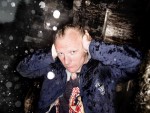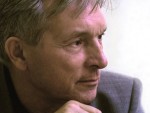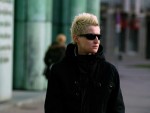Title
Every year in late January, Juilliard’s Focus! festival highlights an aspect of recent music; this year the spotlight is on Poland after World War II. “Polish Modern,” from January 22 to 28, will comprise six concerts of chamber orchestra, chamber music, and solo music from dozens of composers, and a concluding orchestral concert devoted to works by Witold Lutoslawski.
Body
The festival’s theme originated in a conversation with Juilliard President Joseph W. Polisi and Dean Ara Guzelimian. While bouncing around various ideas, Dean Guzelimian proposed that the masterful Lutoslawski needed broader exposure here. The train of thought then led to a Lutoslawski concert in the context of a survey of Polish composers that would be analogous to the Focus! festival of 2007, which featured Hungarian music after Bartok. I knew that this idea would be met with delight at the Polish Cultural Institute in New York, a foreign ministry mission that promotes Polish culture in the U.S. While a few earlier Polish composers—above all Chopin—are well known, living or recently deceased Polish composers have generally been under the radar with the conspicuous exceptions of Lutoslawski and Penderecki. Anna Perzanowska, the institute’s music curator, flew into action with a proposal to send me to Poland to explore the repertory and meet composers and arts administrators.
In June I spent a week in Warsaw, working primarily at the Polish Music Information Center (Polmic), which has a vast archive of scores and recordings. A dynamic staff member, Magdalena Dobrowolska, was assigned to help my search for relevant music, do the legwork to fetch scores and recordings, and make additional contacts with composers. The facility was opened especially for me on Saturday to allow me to complete my search. I then went to Krakow to explore the resources of PWM, the main publisher for Polish composers, whose Paderewski editions of Chopin are known worldwide.
I was deeply impressed by the quantity of really fine music produced even during the brutal years of Communist dictatorship. (Always in the background was the unanswerable question of how much talent perished with the German extermination of Poland’s Jewish community.) Clearly I could not possibly have sampled the work of every composer. Guidance was crucial, and here again, Perzanowska was a great help. Although she could not officially direct me to particular composers, she gave me a starter list of men and women whose music she personally admired. For additional recommendations I turned to two old friends, Zygmunt Krauze, whose music I have enjoyed performing for many years, and Krzysztof Knittel, a leader in Polish electronic music who was director of the Warsaw Autumn Festival when I performed there many years ago. These important teachers gave me good recommendations about younger composers. I also consulted with Tadeusz Wielecki, the current director of Warsaw Autumn, and Jerzy Kornowicz, the president of the Polish Composers’ Union, whom I had unexpectedly seen at the Beijing Modern Music Festival only a few weeks before. It was interesting to see that my contacts admired many of the same composers and had very broad taste. They generally assumed that progressive music interested me most, but when I mentioned a couple of conservative composers whose music struck me as excellent, they concurred. All these recommendations were my starting point.
Since the New Juilliard Ensemble’s early publicity deadline required me to plan its concert first, I had asked Polmic to prepare in advance a complete listing of its holdings of works with suitable instrumentations (roughly 15 players), a task made relatively easy by their excellent database. That list brought other interesting composers to my attention. By the time I got to Krakow, having seen or heard music by dozens of composers, I had a lot of questions for PWM, which, as the chief publisher of modern Polish music, has an indispensable library. An extremely knowledgeable woman from the promotional department gave me many additional suggestions and promised to have all the music ready when I came back two days later. Unfortunately she promptly developed the flu and had to turn me over to a colleague who was very helpful but not nearly as experienced. Nevertheless, it was a fruitful couple of days. At my departure, PWM generously promised to send a large number of scores and recordings.
Fortunately my stay in Poland was not entirely consumed by work. The glorious spring weather was perfect for exploring the city, some of which had been magnificently rebuilt after the Nazis demolished almost all of Warsaw, some of which had been rather drably redeveloped by the Communists. The P.C.I. also arranged for me to see the Warsaw Chamber Opera’s performance of Mozart’s Marriage of Figaro in a rebuilt Baroque church now serving as a concert hall and opera house. The superb singing and acting were especially riveting in a space that seated only 150. When the company’s director introduced me to the cast, their response to the word Juilliard was amusingly reverential!
I had reserved time to visit Auschwitz, which is a couple of hours (by express bus) from Krakow. Despite my considerable knowledge about the three camps at Auschwitz, it was a horrifying experience. The puzzle of “who did what” was brought to life by the brilliant guide. While showing a huge photo of Josef Mengele deciding who was to live and who was to die, the guide told us how a German woman had looked at the photo, realized that the SS officer helping Mengele was her father, and gasped, “But he was such a nice man!” Fortunately, that trip also had a bright side. I was accompanied by Lukasz Szalankiewicz, a young composer of electronic music and sound installations. During the bus rides, I learned a lot about the current state of experimental music and the general state of politics in Poland. I plan to include a brief film with Lukasz’s electronic score in the festival.
Back in New York, I waited for the shipments of music from PWM and Polmic. Unfortunately, after about two months it was clear that PWM’s crucial parcel had gone AWOL and had to be re-sent. Then came the difficult process of paring down the possibilities to the right amount and variety of music for the festival. A central programming consideration was the temporary loss of the festival’s usual home, the Peter Jay Sharp Theater, which will be tied up in preparation for the February performances of The Bartered Bride. We were fortunate to find the right dates in Alice Tully Hall for the opening N.J.E. concert (Saturday, January 22, which I shall conduct) and the closing Juilliard Orchestra concert (Friday, January 28, conducted by Jeffrey Milarsky). The four ensemble and solo concerts will be in Paul Hall, whose major liability is a small stage that complicates moves during a concert and excludes having percussion music with large setups. This year, however, Paul Hall has the great advantage of its organ—Poland has a strong, modernist repertory for this noble instrument that has been so badly neglected by top composers elsewhere. Organ music will therefore play a strong role in the Focus! festival for the first time.
My biggest challenge has been to fit in the many extraordinary composers whose music should be heard. On opening night, the New Juilliard Ensemble will begin with a piece by the earliest-born composer, Grazyna Bacewicz (1909-1969), one of the most distinguished musicians of her generation. Wojciech Kilar and Zygmunt Krauze are leaders of the group that came of age after World War II; their slightly younger colleague Elzbieta Sikora’s 1995 Canzona will feature violist da gamba Andrew Arceci, a student in Juilliard’s Historical Performance program. Representing the impressive generation of composers that matured in the 1970s will be Tadeusz Wielecki, whoseTime of Stone (2002) will showcase Juilliard bassist Douglas Balliett in a solo that can only be described as sky-high. Composers whose music will be heard on the chamber concerts include Boguslaw Schaeffer, Krzysztof Penderecki, and Henryk Gorecki (who, sadly, died on November 12); middle-generation Pawel Szymanski, Pawel Mykietyn, and younger composers Aleksandra Gryka and Jakub Ciupinski (M.M. ’08, composition), plus some 25 other men and women whose music is virtually unknown here. The PCI will invite several composers to come and participate in a preconcert forum before the Tuesday night concert, and another preconcert event will feature electronic music and a short film. With four generations and many aesthetics sprinkled throughout the week, someone attending only one concert ought to come away with a sense of the range of Polish composition.







